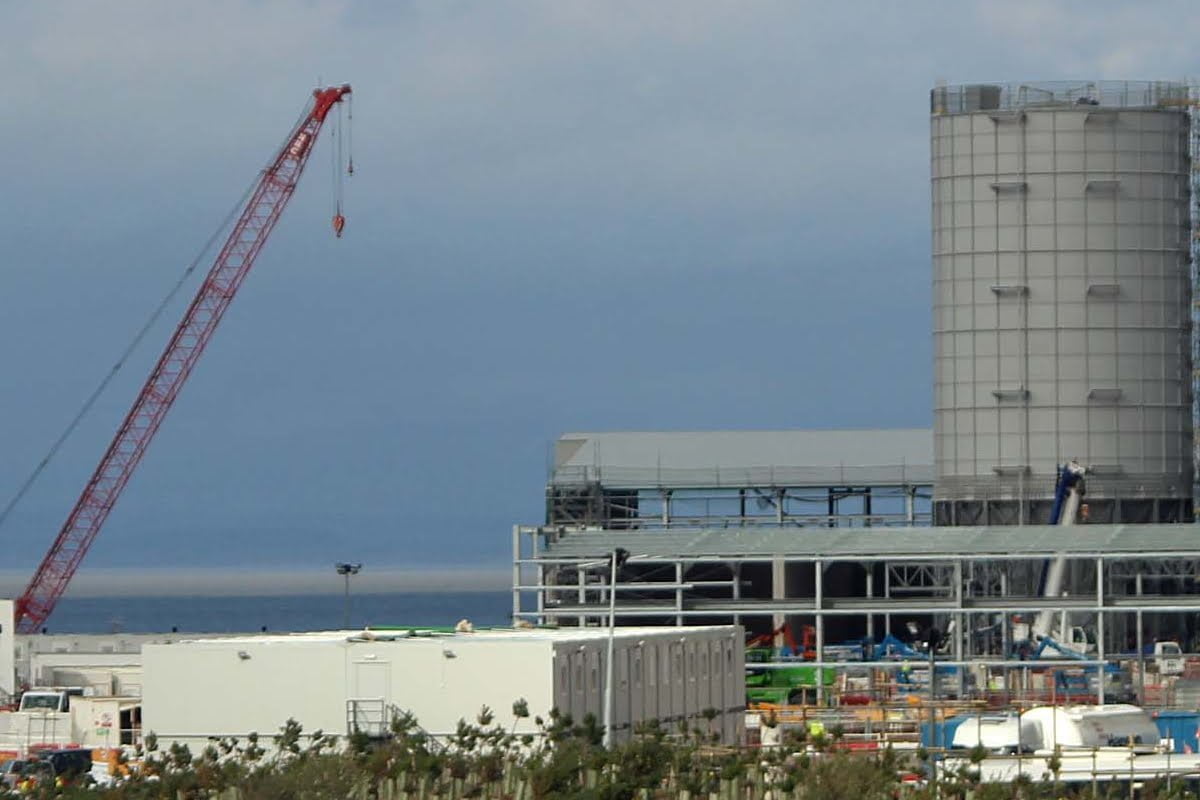Ruthless construction bosses, with the help of the union bureaucracy, have attempted to rip up agreements in order to undermine workers’ wages and conditions. But rank-and-file activists have shown the way forward, waging a militant fightback.
Electrical workers fighting to win a serious industrial dispute at the new-build at Hinkley Point C nuclear power station have struck the first blow and pushed the bosses back.
This dispute centres around the thorny issue of the intended use of Electrical Support Operative (ESO) workers onsite.
With the project set to take on many hundreds of electricians over the coming month, the Balfour Beatty / NG Bailey jointly-run project for site client EDF was clearly looking to cut costs.
Construction bosses planned to do this by having as much work as possible done by lower-paid ESOs, rather than craft-level electricians.
Bogus self-employment
 The proposed use of ESOs is linked to the historical situation of electricians’ ‘mates’. As an official job title, this position doesn’t even exist under the electrical Joint Industry Board (JIB) national agreement. However, it has always been used unofficially to do skilled electricians’ work on the cheap.
The proposed use of ESOs is linked to the historical situation of electricians’ ‘mates’. As an official job title, this position doesn’t even exist under the electrical Joint Industry Board (JIB) national agreement. However, it has always been used unofficially to do skilled electricians’ work on the cheap.
Even JIB member companies often carry this practice out, blatantly disregarding the JIB agreement concerning Rule 17, which is supposed to protect direct employment in doing so.
The flouting of this rule by the firms gives them the opportunity to have ‘mates’ onsite through bogus self-employment, labour agencies, and other similar schemes.
All sorts of names have been used to describe this semi-official position. In the late 1990s, it was known as a Skilled Mechanical Assembler (SMA), for example. Now at Hinkley Point C, the name used is ESO.
Bureaucracy and blacklisting
The names are different, but the bosses’ aims are still the same: the deskilling of the JIB gold card skilled electrician job positions, in order to replace them with semi-skilled workers doing the same work at a cheaper rate of pay.
Major electrical JIB companies and proven blacklisters Balfour Beatty and NG Bailey, based at the HPC project, thought they had a cunning plan. They wanted to introduce ESOs as they liked, with a nod and a wink from members of the Unite bureaucracy, encouraging them along.
Indeed, as in the past, the dispute also centres, in part, around the issue of an unelected full-time union officer bureaucracy always wanting to do a deal with the bosses – to the detriment of the union’s skilled electrical membership.
This practice goes back to the previous construction industry unions of the EETPU, AEEU, and Amicus. And Unite seems to have inherited this tradition.
It’s almost like a relay race, where the older union bureaucracy hands the baton of electricians’ trade deskilling down to the next generation of bureaucrats.
They do this to try and get the deskilling of the electricians agreed, in order to please the bosses and keep their own lives comfortable. Obviously this massively boosts the bosses’ profit margins, as they can get the same work done for less pay and no trouble.
Rank-and-file action
But, as in the BESNA dispute of 2012, the bosses were undone. This was not through the official channels of Unite, but by the magnificent fightback staged by the Unite ‘Electrical Mechanical Engineering Construction’ (EMEC) rank and file, and their activist supporters.
The rank-and-file group went into battle using direct action flash mobs at sites, and at corporate head offices all over Britain. This included protests at Hinkley Point C, and even at the Atomic Weapons Establishment at Burghfield, where Balfour Beatty has a contract.
These techniques were very effective. They showed that workers – when organised and mobilised – can take successful militant action to defend themselves against the bosses’ attacks.
After weeks of direct action across the UK, NG Bailey & Balfour Beatty have stepped away from their deskilling agenda.
This is a massive win for the Rank and File construction members of Unite.#UniteEMEC #No2ESO @BeckettUnite @SteveT_Unite @UniteSharon pic.twitter.com/6PfuKCSX9O
— Unite SE Construction Branch (@UniteSEC) June 10, 2021
That workers are forced to do so in the face of scheming and backroom-dealing by elements of their own union is nothing short of a travesty.
The fight continues
 It seems for now that ESOs have been withdrawn from the HPC project, which is an undeniably important victory. The rank and file know, however, that they cannot trust the bosses one bit.
It seems for now that ESOs have been withdrawn from the HPC project, which is an undeniably important victory. The rank and file know, however, that they cannot trust the bosses one bit.
The very fact that the HR boss at NG Bailey is a former Unite national officer shows why the union bureaucracy is also viewed with suspicion; and why there must be a fight to transform our unions. At the end of the day, the workers can only trust themselves.
The fight against deskilling goes on – not just at Hinkley Point C, but across the whole of Britain. This issue doesn’t just threaten sparks, but ultimately is aimed at all the mechanical trades.
Given the enormous crisis facing the capitalist system, the bosses need to boost their profits somehow. They will try to do so by making us pay for it. Pay cuts, attacks on working conditions and standards: the call from corporate boardrooms is to cut everything but their profits and bonuses.
Workers’ control
Ultimately, to end this threat once and for all, workers need to own and control the commanding heights of the construction industry, as part of a socialist plan of production, putting society’s economic resources to work for the benefit of the working class.
We need to end the hold of the private companies over such a vital industrial sector, and break their control over our unions. This means struggling – on both the industrial and political fronts – until we win.
The sparks have shown the way. The giant monopolies of the industry aren’t invincible. These bosses can be beaten – and so can the rest of the capitalist mob that they’re part of.
With workers’ control and management over our industry, we would be rid of them for good. That’s a prize well worth fighting for.






